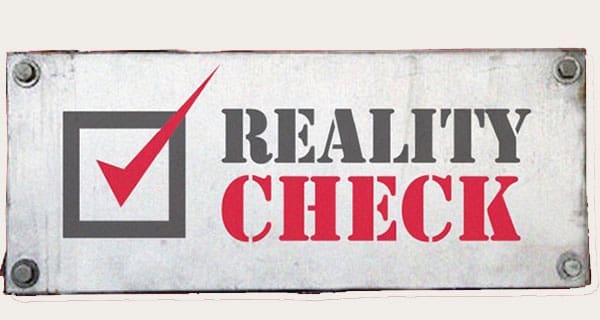 With energy and the environment playing an important role in the fall election, Canadians face starkly different policy positions from political parties, together with a bewildering array of both information and disinformation. Here is my rather eclectic list of little-known facts, head-scratching paradoxes and utter hypocrisy.
With energy and the environment playing an important role in the fall election, Canadians face starkly different policy positions from political parties, together with a bewildering array of both information and disinformation. Here is my rather eclectic list of little-known facts, head-scratching paradoxes and utter hypocrisy.
Climate Emergency
On June 17, the House of Commons passed a motion declaring a National Climate Emergency.
Firstly, there is no such thing as a “national” climate emergency. Climate change is global, not national, and Canada’s contribution to global carbon dioxide (CO2) emissions is a minuscule 1.6 percent.
Here are the answers to some questions that will help you assess whether there’s really a climate emergency.
How much CO2 is in the atmosphere and how fast is it growing? A 2018 report from the U.S. National Oceans and Atmospheric Administration (NOAA) gives the answer. The concentration of CO2 in the atmosphere is one molecule per 2,500 molecules, compared with one molecule per 3,000 molecules 50 years ago. That’s an average growth rate of just 10 molecules per year.
Apocalyptic projections of rapid sea level rises are driving municipal and provincial governments on both our east and west coasts to implement sea level rise plans. These include sterilizing waterfront from development, building sea barriers and even buying out and destroying homes that are deemed vulnerable.
So just how fast are sea levels rising? Here again, the NOAA provides the answer. Despite all the calamitous rhetoric, the NOAA states that sea levels “continue to rise at the rate of about one-eighth of an inch (3.2 mm) per year.” At that rate, a house built 10 feet above sea level today would still be 9 feet 7 inches above sea level 40 years from now.
Climate Change Hypocrisy
South Africa, India, the Philippines, South Korea, Japan and China – all signatories to the Paris climate accord – are building a combined 1,800 new coal-fired power plants. Coal plants emit twice as much CO2 as natural gas plants. Meanwhile, international environmental groups campaign against sending Canadian LNG to those countries.
And here at home, Justin Trudeau’s Liberals have introduced a tax specifically designed discourage the building of new cleaner-burning gas-fired power plants as they pursue the fantasy that wind and solar will keep the lights on. Good luck with that. After hundreds of billions of dollars invested, wind and solar contribute just two percent of global energy supply. And that’s only when the wind is blowing, and the sun is shining.
Climate Change Monovision
The Intergovernmental Panel on Climate Change (IPCC) would have us believe that fossil fuel emissions are the sole reason for climate change. But what about urbanization and deforestation? A study by the UN Department of Economic and Social Affairs states that the urban population rose from 750 million in 1950 to 4.2 billion in 2018. We don’t need the IPCC’s complex computer models to know that cities are hotter. All we have to do is walk from a paved sun-heated street lined with concrete buildings to a grassy park. Rather than reflecting the sun’s rays back to outer space, all that concrete and pavement absorbs the sun rays, creating a giant heat sink. Likewise, deforestation is turning vast tracts of cool African and South American jungles into heat-absorbing barrens. The U.S. EPA summarizes the combined effect, “Processes such as deforestation and urbanization … contribute to changes in climate.” Trying to deal with any problem without considering all possible causes is both a foolish and dangerous strategy.
First, do no harm
The Liberal government’s proposed “national clean fuel standard” requires increased biofuel content in motor fuels. Government mandated biofuel content requirements in North America and the EU have driven the burning of critically important jungle habitat to make way for palm oil plantations. On the islands of Borneo and Sumatra, more than 50,000 Orangutans have died because of palm oil deforestation.
Who burns the stuff anyway
Several municipal councils, including Toronto and Victoria, are looking to sue fossil-fuel producers for causing climate change, but 70 percent of emissions come from their own constituents. And imagine their outcry if fuel producers failed to deliver!
B.C. Green schizophrenia
B.C. Premier John Horgan, a champion of carbon taxes, called an inquiry to investigate high gasoline prices, but prohibited the panel from considering the price impact of provincial taxes. He also wants Alberta to build a new refinery to supply his province, but he’s against the pipeline that’s needed to carry it.
Sorry, only foreign tankers allowed
The Trudeau government implemented a tanker ban prohibiting movement of Canadian oil on the northern B.C. coast. Meanwhile, hundreds of tankers churn through the delicate and much more enclosed St. Lawrence estuaries carrying oil from Saudi Arabia, Venezuela, Russia, Iraq, Nigeria, Angola and Algeria. And while ship/whale collisions are virtually unheard of on B.C.’s northern coast, those foreign oil tankers move through waters where a critically endangered Northern Right Whale was killed in a ship collision in June.
The great anti-oil industry warrior is back
Gerald Butts, former personal secretary to the Prime Minister, has been rehabilitated to help the Liberals win re-election. Before joining the Prime Minster’s Office (PMO), Butts was CEO of World Wildlife Canada (WWF), an organization that aims to “landlock” the oilsands by stopping new pipelines. In his role as head honcho of the PMO, he was the mastermind behind policies that crippled our country’s oil industry. Butts has admitted via his Twitter account to receiving $361,642 from WWF during his first two years at the PMO. He claims it was severance, but how many Canadians have ever received severance for quitting their job? Butts resigned from the PMO after being accused of ethical transgressions related to the SNC Lavalin scandal, but why hasn’t this more direct and personal ethical transgression been reported by news media?
So there you have it, my list of points to ponder through those long and balmy mid-summer evenings that “we the north” enjoy.
Gwyn Morgan is a retired Canadian business leader who has been a director of five global corporations.
Gwyn is a Troy Media contributor. Why aren’t you?
The views, opinions and positions expressed by columnists and contributors are the author’s alone. They do not inherently or expressly reflect the views, opinions and/or positions of our publication.


